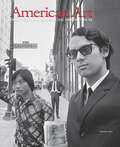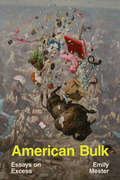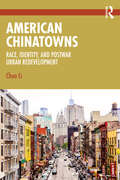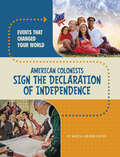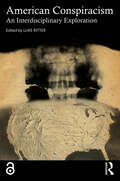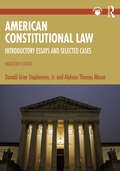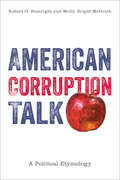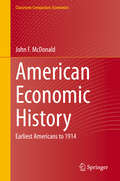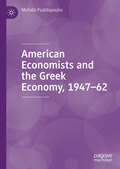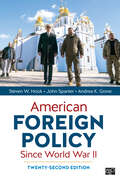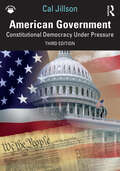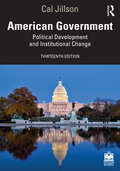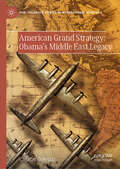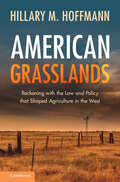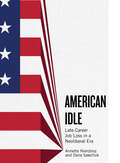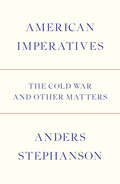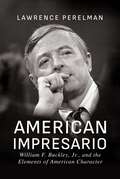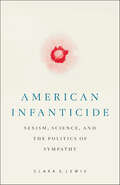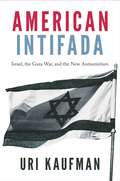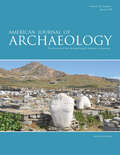- Table View
- List View
America's Not-So-Sweetheart
by Blair HansonAfter spending the year suffering as a reality TV villain IRL, Alec Braud will do anything to get his redemption arc.Alec Braud may have won his season of the hit teen reality TV show Campfire Wars, but he’s lost the war of public opinion. At seventeen, he’s the most hated teen in America just because he betrayed his showmance, Joaquín Delgado. Alec only did it to use the cash prize to help his parents’ wildlife rehabilitation center. And Joaquín forgave him—so why can’t everybody else?Joaquín was the golden boy of their season, and everyone still loves him—including Alec. So when he asks Alec to join him on a trip to re-create classic movie kisses for his art school portfolio, Alec agrees in the hopes it’ll mend his reputation. What could possibly go wrong on a week-long cross-country road trip with his ex and lots of fake kissing?Lines get blurred between what part of the trip is for the camera and what isn’t. From there, things get even more complicated when trouble at his parents’ wildlife rehabilitation center tempts Alec to attend a CW convention for a chance to get his family more money. At the convention, Alec hears that villains from other seasons are plotting to get onto an upcoming allstars season to redeem themselves—and they want him to join.With former players trying to recruit him, Joaquín hinting he might want to get back together with him, and show execs whispering in his ear, Alec will have to decide for himself who he really is and what he really wants.
America, América: A New History of the New World
by Greg GrandinA New York Times bestseller&“An extraordinarily ambitious book . . . America, América reads at times as the historical equivalent of the great epic novels of Gabriel García Márquez.&” —Irish TimesFrom the Pulitzer Prize–winning historian, the first comprehensive history of the Western Hemisphere, a sweeping five-century narrative of North and South America that redefines our understanding of bothThe story of how the United States&’ identity was formed is almost invariably told by looking east to Europe. But as Greg Grandin vividly demonstrates, the nation&’s unique sense of itself was in fact forged facing south toward Latin America. In turn, Latin America developed its own identity in struggle with the looming colossus to the north. In this stunningly original reinterpretation of the New World, Grandin reveals how North and South emerged from a constant, turbulent engagement with each other.America, América traverses half a millennium, from the Spanish Conquest—the greatest mortality event in human history—through the eighteenth-century wars for independence, the Monroe Doctrine, the coups and revolutions of the twentieth century, and beyond. Grandin shows, among other things, how in response to U.S. interventions, Latin Americans remade the rules, leading directly to the founding of the United Nations; and how the Good Neighbor Policy allowed FDR to assume the moral authority to lead the fight against world fascism.Grandin&’s book sheds new light on well-known historical figures like Bartolomé de las Casas, Simón Bolívar, and Woodrow Wilson, as well as lesser-known actors such as the Venezuelan Francisco de Miranda, who almost lost his head in the French Revolution and conspired with Alexander Hamilton to free America from Spain; the Colombian Jorge Gaitán, whose unsolved murder inaugurated the rise of Cold War political terror, death squads, and disappearances; and the radical journalist Ernest Gruening, who, in championing non-interventionism in Latin America, helped broker the most spectacularly successful policy reversal in United States history. This is a monumental work of scholarship that will fundamentally change the way we think of Spanish and English colonialism, slavery and racism, and the rise of universal humanism. At once comprehensive and accessible, America, América shows that centuries of bloodshed and diplomacy not only helped shape the political identities of the United States and Latin America but also the laws, institutions, and ideals that govern the modern world. In so doing, Grandin argues that Latin America&’s deeply held culture of social democracy can be an effective counterweight to today&’s spreading rightwing authoritarianism.A culmination of a decades-long engagement with hemispheric history, drawing on a vast array of sources, and told with authority and flair, this is a genuinely new history of the New World.
American Art, volume 39 number 1 (Spring 2025)
by American ArtThis is volume 39 issue 1 of American Art. American Art publishes innovative peer-reviewed scholarship on the history of art and related visual culture. The journal critically engages with the material and conceptual conditions of art and provides a forum for the expanding field of American art history. It welcomes scholarship on the role played by art in the ongoing transnational and transcultural formation of America as a contested geography, identity, and idea. Committed to rigorous inquiry, the journal presents a range of approaches to the production and consumption of art.
American Art, volume 39 number 2 (Summer 2025)
by American ArtThis is volume 39 issue 2 of American Art. American Art publishes innovative peer-reviewed scholarship on the history of art and related visual culture. The journal critically engages with the material and conceptual conditions of art and provides a forum for the expanding field of American art history. It welcomes scholarship on the role played by art in the ongoing transnational and transcultural formation of America as a contested geography, identity, and idea. Committed to rigorous inquiry, the journal presents a range of approaches to the production and consumption of art.
American Bulk: Essays on Excess
by Emily MesterRaised with hoarding and compulsive shopping, Emily Mester is caught in between. What happens when consumption begins to consume you back? In a series of deeply personal essays, Mester explores how the things we buy, eat, amass, and discard become an intimate part of our lives. We guiltily watch Amazon boxes pile up on the porch, wade through endless reviews to find the perfect product, and crave the comforting indulgence of a chain restaurant. With humor and sharp intellect, Mester reflects on the joys and anxieties of Costco trips, how a seasonal stint at Ulta Beauty taught her the insidious art of the sale, and what it means to get “mall sad.” In a nuanced examination of diet culture and fatness, Mester recounts her teenage summer at fat camp and the unexpected liberation she finds there. Finally, she ventures to Storm Lake, Iowa, to reckon with her grandmother’s abandoned hoard, excavating the dysfunction that lies at the heart of her family’s obsession with stuff. American Bulk introduces readers to a striking new literary talent from the American heartland, one who dares to ask us to regard consumption not with guilt but with grace and empathy.
American Chinatowns: Race, Identity, and Postwar Urban Redevelopment
by Chuo LiAmerican Chinatowns: Race, Identity, and Postwar Urban Redevelopment offers a captivating exploration of the vibrant yet contested landscapes of Chinatowns across the United States.Through a critical and nuanced lens, Li examines how postwar urban redevelopment, racial dynamics, and identity politics have profoundly transformed these iconic neighborhoods. Blending rich historical research with sharp analysis, this book uncovers the interplay of race, urban planning ideologies, and social equity, shedding light on how Chinatowns navigate resilience and reinvention amid shifting urban paradigms. Li’s work highlights the tension between cultural preservation and modernization, exploring the built environment alongside community-driven spatial activism to reveal how these urban spaces persist as sites of resistance, identity, and transformation. American Chinatowns is a compelling study of cultural landscape, urban justice, and the politics of city-making.This book is essential reading for scholars, urbanists, and anyone intrigued by the intersection of race, identity, and the evolving narratives of America’s cities. This book invites readers to rethink the meaning of place, heritage, and equity in the urban fabric.
American Colonists Sign the Declaration of Independence (Events That Changed Your World Ser.)
by Marcia Amidon LustedThe United States is a young country founded on complicated ideals—ones that it still strives to fulfill. Many of those ideals were established in the 1776 Declaration of Independence—when colonists decided to separate from Great Britain. With historical images and details about key events before and after the political separation, this book will help kids understand the impact of the declaration on the history of the United States. Uncover the details of events that changed your world in this Pebble Explore series.
American Conspiracism: An Interdisciplinary Exploration
by Luke RitterThis important collection explores the social effects of popular American conspiratorial beliefs, featuring the work of 22 scholars representing multiple academic disciplines.This book aims to better understand the phenomenon of American conspiracism by investigating how people acquire their beliefs, how conspiratorial stories function in politics and society, the role of conspiracy theories in the formation of national identities, and what conspiratorial beliefs mean to individual believers. Topics include QAnon, the Boogaloo Boys, the satanic panic, the Martin Luther King, Jr. Assassination, the Great Replacement Theory, anti-Catholic nativism, Flat Earth belief, Elvis Lives, COVID-19 denial, and much more. Each essay is accessibly and engagingly written without compromising quality.American Conspiracism is essential reading for students of psychology, political science, and U.S. history, as well as journalists, independent researchers, and anyone interested in American conspiracies.
American Constitutional Law: Introductory Essays and Selected Cases
by Alpheus Thomas Mason Donald Grier Stephenson Jr.This book is a collection of comprehensive background essays coupled with carefully edited Supreme Court case excerpts designed to explore constitutional law and the role of the Supreme Court in its development and interpretation. Well-grounded in both theory and politics, the book endeavors to heighten students’ understanding of this critical part of the American political system. NEW TO THE 19th EDITION• An account of the recent Supreme Court transitions, including the Biden Court commission, the appointment of Ketanji Brown Jackson, and the heightened political and ethical difficulties facing the Court. • Five new cases carefully edited and excerpted, including Minor v. Happersett (1875) on gender and voting rights, Trump v. Anderson (2024) on access to the ballot, Carson v. Makin (2022) on religious freedom, New York Rifle & Pistol Assn. v. Bruen (2023) on Second Amendment rights, Dobbs v. Jackson Women’s Health Organization (2023) on abortion rights, and Students for Fair Admissions, Inc. v. President and Fellows of Harvard College, together with Students for Fair Admissions, Inc. v. University of North Carolina on affirmative action. • Twenty-one new cases discussed in chapter essays. • Tips on reading a Supreme Court decision remains as a box in Chapter One.
American Corruption Talk: A Political Etymology
by Robert G. Boatright Molly Brigid McGrathAmericans often worry about political corruption—not only about specific officials misusing their powers, but also more broadly about political, cultural, moral decay or deterioration. Underneath our talk about corruption lie deeper claims and concerns about how we organize our common life. American Corruption Talk presents a study of corruption and corruption talk that seeks to understand those deeper claims and concerns. Robert Boatright and Molly Brigid McGrath focus on the role corruption talk plays in American political discourse. They distinguish between two ways people speak about corruption—corruption talk in the style of a purifier, who wishes to expunge the evil forces or drain the swamp, and corruption talk in the style of the mender, who thinks of managing, replacing, or repairing. American Corruption Talk begins by tracing how the concept of political corruption was developed by philosophers and political thinkers, leading up to its use in the American context, especially in the Progressive Era. It also compares modes of contemporary corruption talk in different areas of public life. In doing so, the authors hope to resolve confusion and partisan disagreements about what corruption is and to discourage the tendency to label actions, events, and ideas that we merely disagree with as corrupt.
American Denim: The Supposed Final Days and Resurgence of a Manufacturing Icon
by Matt SharkeyAmerican Denim aims to preserve a unique property and a unique time in the history of American textiles. At one time the world&’s largest denim mill, occupying more than a million square feet, you almost couldn&’t see where the looms ended at the White Oak mill in Greensboro, North Carolina. Between 1915 and 1970, the lion&’s share of denim produced for Levi Strauss & Co. was made there. Photographer Matt Sharkey was the only person granted access to all three recent stages of the White Oak mill&’s life: • the last week of commercial production in December 2017 • empty and vacated in February 2018 • brought back to life in a small but mighty way in September 2022 Here is a layered history told through beautifully honest "portraits" that were captured with film, an analog process to honor analog manufacturing and those who worked, and work, at the mill.
American Economic History: Earliest Americans to 1914 (Classroom Companion: Economics)
by John F. McDonaldThis textbook introduces undergraduate and advanced undergraduate students to the economic foundations of America. Providing a rigorous yet accessible exploration of American Economic History from pre-Columbian times up to 1914, it explains the economic and demographic nuances of colonial America, including the Spanish, French, and English colonies and how they were governed. The book presents the details of the controversy between the English colonists and the English Parliament. It further features the impact of slavery, the Revolutionary and Civil War eras, and it includes extensive economic analysis of the post Civil War nation up to 1914. Based on the author's lectures, the book allows an easy understanding of the economic evolution from the earliest Americans to World War I. Instructors can customize their curriculum by supplementing this fundamental text with additional readings, offering flexibility while ensuring a solid knowledge of the economic aspects of American history.
American Economists and the Greek Economy, 1947-62
by Michalis PsalidopoulosThis book explores the role of American economists in Greece between 1947 and 1962. With a focus on economic thought and political relations, it examines the Greek economy following the Second World War and highlights the economic ideas and policies that brought Greece out of an economic depression. Collaboration between Greek, American, and British policymakers, economists, politicians, and administrators in providing humanitarian relief, economic rehabilitation and monetary order is highlighted. By examining the specific economic policies and how they were articulated, a nuanced view of policy making is presented that provides insight into policies that were shaped by both New Deal idealism and post-war realism. This book offers unique insights into the post-war reconstruction of Greece and the exchange of ideas between American and Greek economists. It will be of interest to students and researchers working within economic policy issues, international political economy and the history of economic thought.
American Foreign Policy Since World War II
by Steven W. Hook John W. Spanier Andrea K. GroveNow in its Twenty-Second Edition, Hook, Spanier, and Grove’s American Foreign Policy Since World War II has long set the standard in guiding students through the complexities of American foreign policy. The text introduces students to the American "style" of foreign policy, imbued with a distinct sense of national exceptionalism. By giving students the historical context they need, this book allows them to truly grasp the functions and dysfunctions of the nation’s foreign policy agenda with historical insight into modern policy context.
American Foreign Policy Since World War II
by Steven W. Hook John W. Spanier Andrea K. GroveNow in its Twenty-Second Edition, Hook, Spanier, and Grove’s American Foreign Policy Since World War II has long set the standard in guiding students through the complexities of American foreign policy. The text introduces students to the American "style" of foreign policy, imbued with a distinct sense of national exceptionalism. By giving students the historical context they need, this book allows them to truly grasp the functions and dysfunctions of the nation’s foreign policy agenda with historical insight into modern policy context.
American Government: Constitutional Democracy Under Pressure
by Cal JillsonAmerican Government: Constitutional Democracy Under Pressure highlights the dangerous tension between our constitutional principles and institutions and the populist heat that sometimes roils our national politics, including at the current political moment. Our constitutional democracy has been under pressure for some time, but few would deny that fears for its fate have deepened in just the past few years. We assume that our political institutions will limit and contain contemporary populism, just as the Founders intended and as they have in the past, but will they? An increasingly polarized electorate, urging their representatives to fight and never to compromise, may be stressing Constitutional limits. This new edition offers to help American government teachers lead their students to a nuanced theoretical and practical understanding of what is happening in the politics of their Constitutional democracy today.New to the Third Edition Further develops and highlights the distinguishing theme of the book, “Constitutional Democracy Under Pressure,” in light of the Trump and Biden administrations. Expands coverage of all media aspects including fake news, social media, responsible journalism, and related topics including foreign manipulation of the news. Describes numerous ways in which the American political system has been affected by the recovery from the Covid-19 pandemic, inflation, and security concerns. Evaluates the evidence for increasing polarization in public opinion, voting behavior, and legislative politics. Explores the implications of recent Supreme Court decisions including controversial rulings on reproductive health, the separation of church and state, the environment, and presidential powers. Includes the most recent election results. Updates in all tables, figures, suggested readings plus photo updates throughout.
American Government: Political Development and Institutional Change
by Cal JillsonHow politics in America works today, how it got that way, and how it’s likely to change through reform—these are the themes that pervade every chapter of Cal Jillson’s highly lauded American Government: Political Development and Institutional Change. Even in the midst of current challenges, America’s past is present in all aspects of the contemporary political system. Jillson uses political development and the dynamics of change as a thematic tool to help students understand how politics works now—and how institutions, participation, and policies have evolved over time to produce the contemporary political environment. In addition, Jillson helps students think critically about how American democracy might evolve further, focusing in every chapter on reform and further change.New to the Thirteeenth Edition Assesses the results of the Biden administration and the impact on the 2024 campaign of Biden’s unexpected replacement by Kamala Harris at the top of the ticket. Describes numerous ways in which the American political system has been affected by recovery from the Covid-19 pandemic, the demise of Roe v. Wade, inflation, and the border. Assesses the implications of the January 6, 2021 attack on the Capitol, the Trump trials, and what they mean for our political culture and partisan politics. Assesses the implication of "fake news" and "the move to mobile" for our politics.Explores the evidence for increasing polarization in public opinion, voting behavior, and the work of Congress and the courts. Details the impact that the Russian invasion of Ukraine and the war in Israel and Gaza had on U.S. foreign policy and national security alliances.
American Grand Strategy: Obama's Middle East Legacy (Palgrave Studies in International Relations)
by Çağatay ÖzdemirThis book provides a comprehensive analysis of American grand strategy during the Obama administration and its impact on the Middle East. It explores the concept of grand strategy, examining how national objectives and security priorities influence foreign policy decisions. The text compares Obama&’s approach to those of his predecessors, Bill Clinton and George W. Bush, highlighting key decisions and their consequences. The book focuses especially on issues such as the conflicts in Afghanistan and Iraq, the Arab uprisings, nuclear negotiations with Iran, and the Israel-Palestine conflict. The book also examines the long-term effects of Obama&’s policies on U.S. foreign relations, offering insights into the successes and challenges faced in the Middle East. Lastly, it considers the evolution of the American grand strategy under the subsequent administrations of Trump and Biden, shedding light on the continuity and shifts in America's foreign policy direction. This work is essential for anyone interested in U.S. foreign policy, Middle East politics, and grand strategy.
American Grasslands: Reckoning with the Law and Policy that Shaped Agriculture in the West
by Hillary M. HoffmannAmerican Grasslands provides a comprehensive review of select laws and policies that have shaped modern western agriculture. Through compelling stories of both famous and lesser-known ranches, the book explores the trajectory of law and policy that has consolidated power in western ranchers and agricultural enterprises. Drawing lessons from historical events such as the Dust Bowl and the current climate and extinction crises, the book illustrates the harmful externalities of agricultural activity and the need for meaningful reform. The book also addresses recent national calls for social and racial justice in the context of western agriculture and public resources like water, land, and wildlife. After highlighting the problems created by current laws and policies, the book offers practical recommendations for future legal and policy reform. American Grasslands is a must-read for anyone interested in the history and future of western agriculture and the role of law and policy in shaping it.
American Idle: Late-Career Job Loss in a Neoliberal Era (Inequality at Work: Perspectives on Race, Gender, Class, and Labor)
by Annette Nierobisz Dana Sawchuk Dana Sawchuck Annette Marie NierobiszIn American Idle, sociologists Annette Nierobisz and Dana Sawchuk report their findings from interviews with sixty-two mostly white-collar workers who experienced late-career job loss in the wake of the Great Recession. Without the benefits of planned retirement or time horizons favorable to recouping their losses, these employees experience an array of outcomes, from hard falls to soft landings. Notably, the authors find that when reflecting on the effects of job loss, fruitless job searches, and the overall experience of unemployment, participants regularly called on the frameworks instilled by neoliberalism. Invoking neoliberal rhetoric, these older Americans deferred to businesses’ need to prioritize bottom lines, accepted the shift toward precarious employment, or highlighted the importance of taking initiative and maintaining a positive mindset in the face of structural obstacles. Even so, participants also recognized the incompatibility between neoliberalism’s “one-size-fits-all” solutions and their own situations; this disconnect led them to consider their experiences through competing frameworks and to voice resistance to aspects of neoliberal capitalism. Employing a life course sociology perspective to explore older workers’ precarity in an age of rising economic insecurity, Nierobisz and Sawchuk shed light on a new wrinkle in American aging.
American Imperatives: The Cold War Reconsidered
by Anders StephansonA radical reinterpretation of the Cold War by its most iconoclastic historian.What was the cold war? Conventional wisdom makes it coextensive with an epoch stretching from the end of the Second World War to the collapse of the Soviet Union, a geopolitical period dominated by the confrontation between the United States and the USSR. In a fundamental challenge to prevailing orthodoxy, Anders Stephanson explodes this misconception, which has misled historians and obscured the US-centered nature of the entire process. He argues that &“the cold war&” is better understood as the frame that made the global role of the US after 1947 not only possible but imperative, and that in its classic form it ended in 1963, after the Cuban Missile Crisis.American Imperatives does not assume that the causes of the great superpower rivalry rest solely with the United States. But the frame was unmistakably and ineradicably American. Without it, there would not have been, properly speaking, a cold war.
American Impresario: William F. Buckley, Jr., and the Elements of American Character
by Lawrence PerelmanIn 1994, William F. Buckley, Jr., the conservative icon, received a letter from an eighteen-year-old aspiring pianist by the name of Lawrence Perelman, the son of Soviet Jewish immigrants. Buckley&’s response sparked a remarkable cross-generational friendship during which Perelman learned of the timeless elements of Buckley&’s character, and the central role of classical music in Buckley&’s American vision.Lawrence Perelman, an eighteen-year-old aspiring pianist and son of Soviet Jewish immigrants, wrote a letter to William F. Buckley, Jr., the conservative icon, in 1994. A remarkable cross-generational friendship was sparked by Buckley&’s response. During their friendship Perelman would go on to learn of the timeless elements of Buckley&’s character and the central role of classical music in Buckley&’s American vision. In 2025, the 100th anniversary of Buckley&’s birth, this book delves into some of Buckley&’s virtues which Perelman witnessed firsthand and argues that those virtues can transform the fabric of America&’s character. Their friendship spanned from 1995 to February 27, 2008, the day Buckley passed away in his Connecticut home while Perelman practiced piano in a nearby room for a private recital that evening for Buckley and friends that would never happen. American Impresario is a portrait of Buckley, the impresario of the conservative movement, man of faith, Cold Warrior, bulwark against Anti-Semitism, Renaissance man, musician, and mentor to countless people who continue their work today. This book will inspire readers, both young and old, to emulate Buckley&’s virtues, including a return to civil discourse, anonymous philanthropy, faith, patriotism and fostering relationships between mentor and protégé, as part of a goal to reweave the fabric of our nation&’s character.
American Infanticide: Sexism, Science, and the Politics of Sympathy (Critical Issues in Crime and Society)
by Clara S. LewisOn April 22, 2015, the sorority sisters at Ohio’s Muskingum University’s Delta house encountered a horrific scene: pools of blood and gore in the first-floor bathroom. No one knew exactly what had happened, but the sisters suspected it had something to do with Emile Weaver. Studious, athletic, and well-liked, Emile had recently started wearing bulky sweatsuits and hiding her midsection, as if she was covering up a sudden weight gain. Could Emile be pregnant? Emboldened by fear, the sorority sisters investigated. In the driveway next to the kitchen door, they found Emile’s newborn baby girl dead inside a garbage bag. Emile’s crime seemed senseless and left her family and friends with an aching question: what happened? American Infanticide situates Emile's tragic act in a long intellectual, social, and legal history, uncovering disturbing missing chapters in our national history that undercut myths that have shaped public reactions to so-called monster moms and dumpster babies since the colonial era. Ultimately, the book uncovers how bias and inconsistency dictate how women accused of infant homicide are perceived and punished and sheds new light on how and why our legal responses to infanticide are so deeply misguided.
American Intifada: Israel, the Gaza War and the New
by Uri KaufmanWhy are progressives so hostile to Israel?Listen to commentators and a pattern quickly emerges: the more liberal the speaker, the more likely they are to attack Israel. Worse, many liberals say things about Israel that are patently false. After the October 7 Hamas attack, Barack Obama said that Israel had &“unclean hands&” because of the &“unbearable occupation&”. The trouble was, there was no occupation. Israel had withdrawn from Gaza almost twenty years before. With his acclaimed wit, historian Uri Kaufman answers the riddle by examining the phenomenon through the distorting lens of race. Simply put, Israelis are perceived as a white group of privilege, while Palestinians are perceived as people of color. For progressives, fighting for people of color is the core value that crowds out all other considerations, no matter the facts. It all results in a strange upside-down world where liberals attack Israelis who share their values, while embracing Palestinians who reject them.
American Journal of Archaeology, volume 129 number 1 (January 2025)
by American Journal of ArchaeologyThis is volume 129 issue 1 of American Journal of Archaeology. The American Journal of Archaeology, the journal of the Archaeological Institute of America, was founded in 1885 and is one of the world's most distinguished and widely distributed peer-reviewed archaeological journals. The AJA reaches more than 40 countries and approximately 700 universities, learned societies, departments of antiquities, and museums. The AJA publishes original research on the diverse peoples and material cultures of the Mediterranean and related areas, including North Africa (with Egypt and Sudan), Western Asia (with the Caucasus), and Europe, from prehistory through late antiquity.



